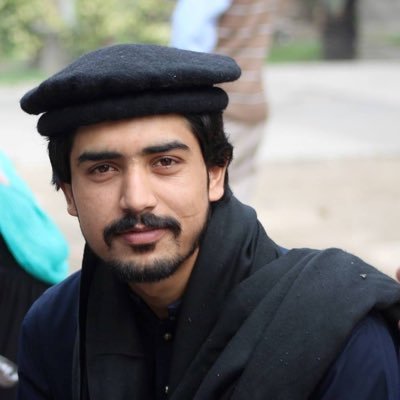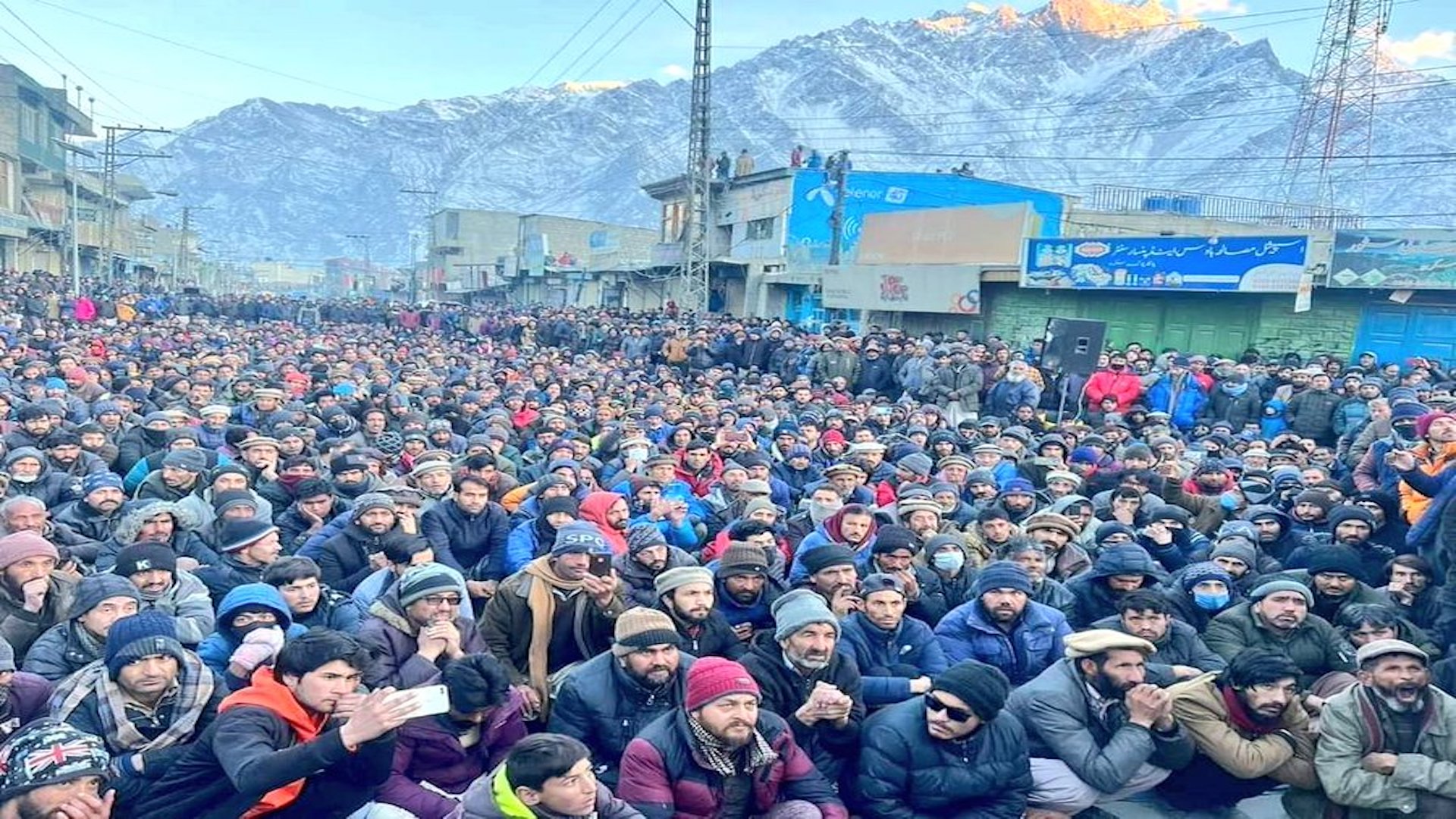The ongoing mass protest in Gilgit-Baltistan against the never-ending constitutional crisis and other grievances of the people has now entered its tenth day despite subzero temperature. Anjuman-e-Tajiran and Awami Action Committee have been leading the protests, mainly against the removal of wheat subsidy, imposition of illegal taxes in the form of electricity bills, and the state acquiring common lands in the name of ‘Khalisa Sarkar’ (a draconian law introduced in the region by Sikh rulers about a century ago). Such mass protests have taken place many times in the region over the past few years, but this agitation has gone unnoticed by the mainstream.
Gilgit-Baltistan is currently like a child whose caregiver is neither alive nor dead. The local population of Gilgit-Baltistan, because of its disputed political status, has always been treated like second-class citizens. Historically, the region of Gilgit-Baltistan comprised multiple autonomous princely states governed through customary laws. In 1846, under the treaty of Amritsar, when the Dogra rule was extended, the whole region did not constitute a monolith political entity. Different princely states were autonomous at large, but they accepted the suzerainty of the Kashmir state and paid annual taxes.
Gilgit-Baltistan gained independence from the Dogra Rule on November 1, 1948 — a year after Pakistan came into being — and this alone establishes that the struggle for independence of Gilgit-Baltistan has been on a rather different trajectory than the Pakistan Movement. Nonetheless, the region officially came under the administrative control of Pakistan through the infamous Karachi agreement of 1949 where the political leadership of Kashmir handed over Gilgit-Baltistan to Pakistan. Pakistan has since failed to incorporate GB completely as its constitutional part, leaving behind a political void that continues to exist even after seven decades.
It is important to note that by accepting GB as an integral part of the Kashmir dispute, Pakistan agreed to take the responsibility of ensuring special rights to the indigenous population — which, among other steps, included subsidies and amenities on goods like wheat, exemption from taxes, and protection of the local land under the State Subject Rule (SSR) — which was abolished in the 1970s, thereby creating a legal vacuum.
Khalisa Sarkar rule, through which the state justifies the acquisition of common barren land, was introduced by the Dogra Raj according to which the barren land was supposed to be part of the state. Another law that went hand in hand with Khalisa Sarkar was State Subject Rule. According to the SSR, outsiders were barred from acquiring or using the local land for any reason. After independence from the Dogra Raj, it was implicit that the land that previously belonged to the Dogra state would become the property of the local population while the State Subject Rule would continue. However, the consequent course of action after independence from Dogra Raj unfolded in a diametrically opposite direction: the state upheld Khalisa Sarkar Rule and abolished the State Subject Rule.
Under UNCIP resolutions, to which Pakistan is a signatory, Gilgit-Baltistan being the disputed territory is entitled to have subsidies on 52 commodities, but Pakistan has reduced it to only wheat. To the discomfort of the local population, Pakistan is even failing to implement the only subsidy it is giving (on wheat), and this has prompted mass movement(s).
Similarly, since it does not have representation in the country’s parliament, Gilgit-Baltistan is exempt from certain taxes which are collected from the other four provinces. The imposition of new taxes in the region has thus added fuel to the fire, and the mass protests have expanded.
And this political deprivation of Gilgit-Baltistan is conveniently covered-up by overemphasising the ‘beauty’ of the region. The grievances of the people of Gilgit-Baltistan need to be heeded, not with the aim to accommodate them in the status quo, but to find a permanent solution. They should either be granted their constitutional rights, or allowed to form a true local constitutional assembly in the region — unlike the existing one that has no true power to legislate on important subjects.

The writer is a human rights activist.

